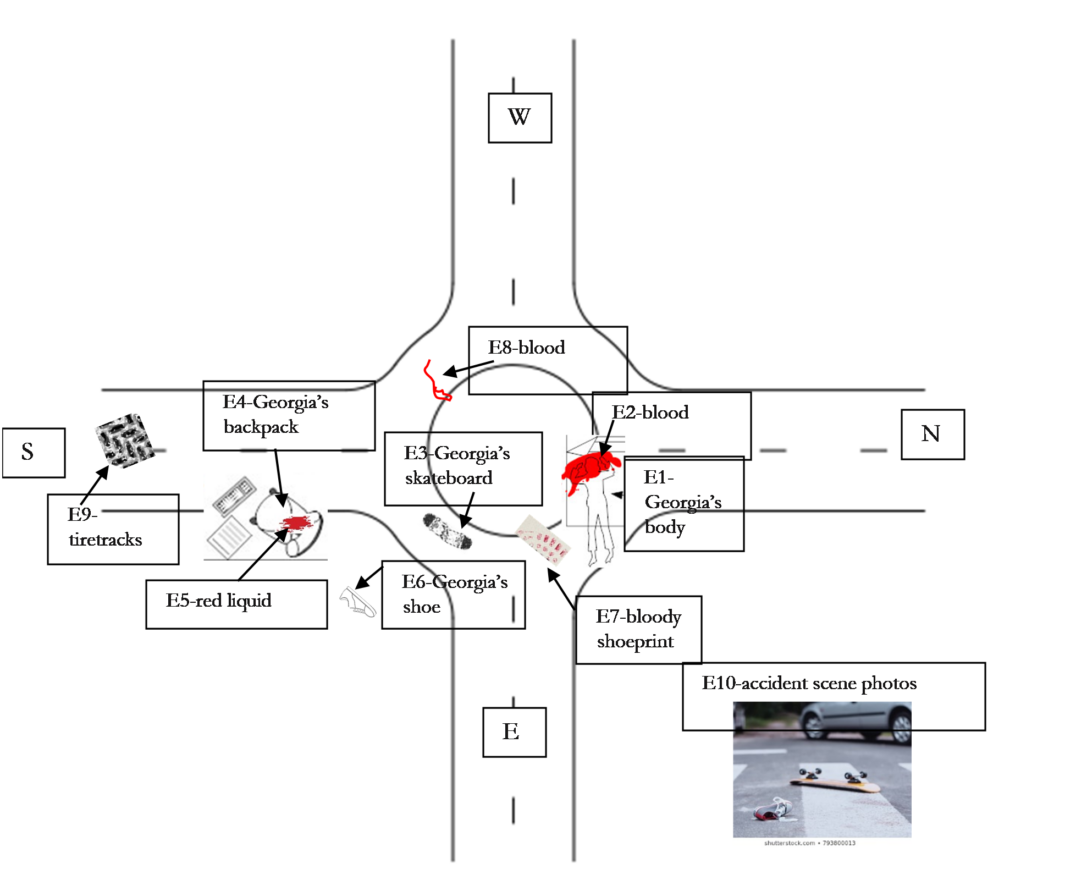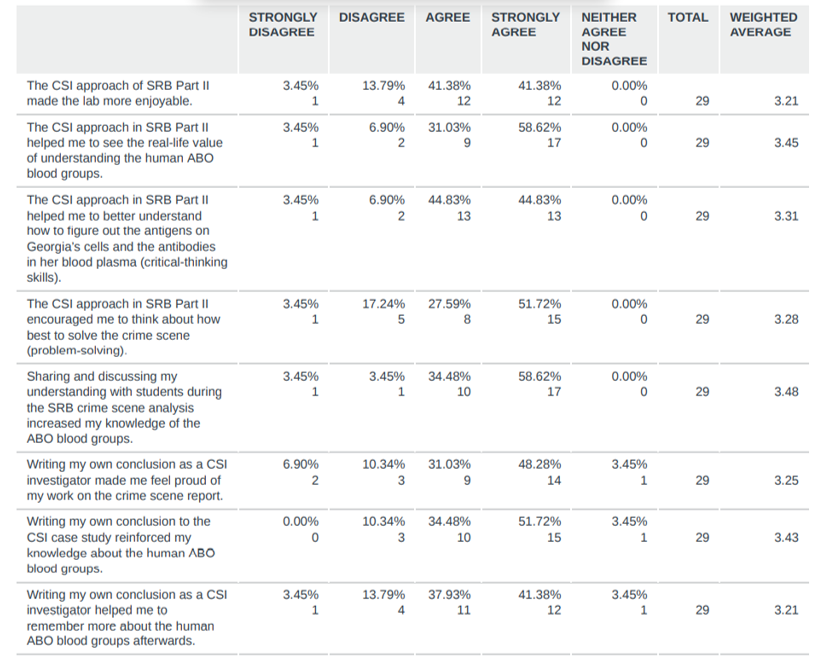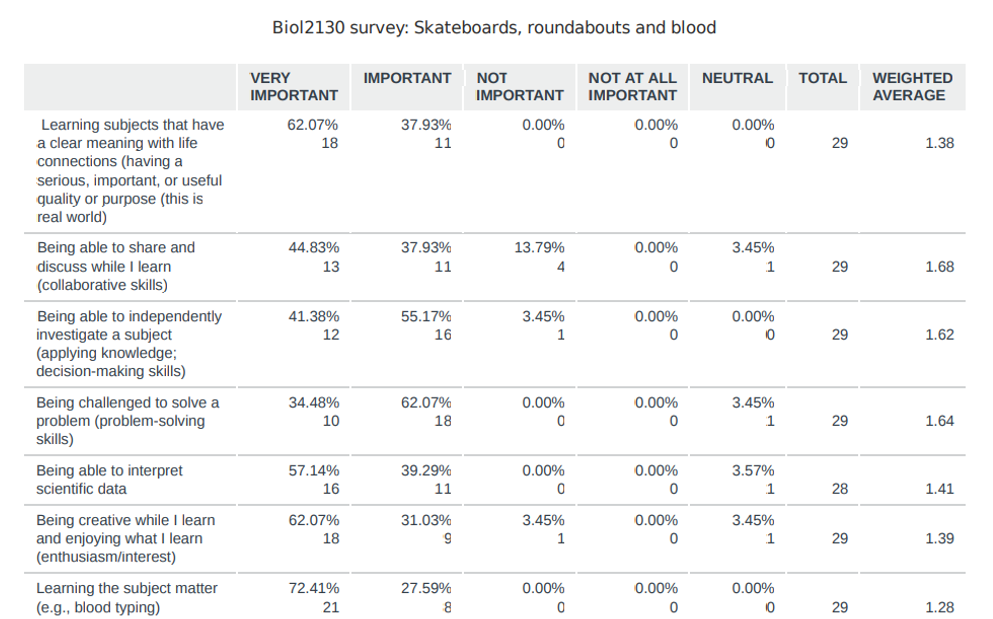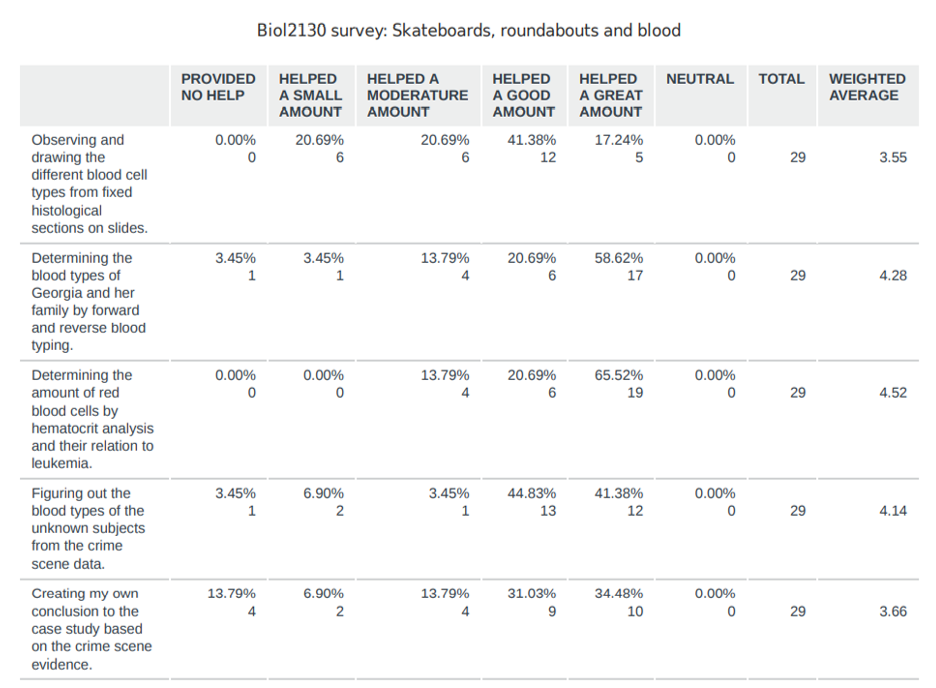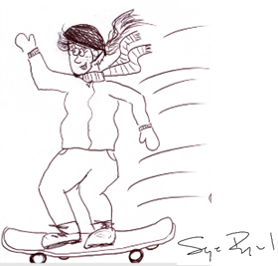
Project overview: I initiated a research project called ‘Skateboards, roundabouts & blood (SRB)–An investigative case study of Human ABO/Rh blood types’. The purpose was to combine a case study approach with inquiry-based undergraduate laboratory investigation in order to improve students’ learning experience and gains at Thompson Rivers University. My collaborator and I received an Emerging SoTL Scholars Grant in support of this ethics-approved project (see dropdown below) to foster deep learning of core biological concepts in undergraduate majors (Introductory Cell Biology-2nd yr) and nonmajors (Human Biology-1st yr) labs. The case study is illustrated by my former cell biology student (Sage Raymond) for TRU students!
Project significance: Blood typing has a worldwide audience in laboratory/lecture instruction in a variety of biology courses at multiple levels. “SRB” can facilitate interdisciplinary learning to highlight connections between specific academic topics and real-world global societal issues (Bonney, 2013). The SRB case study is associated with a variety of global public health/social/economic issues, including blood transfusion/transplantation medicine; blood donation/disease; and evolution/selective pressures (malaria/sickle cell) (Bonney, 2013). Interdisciplinary extensions can include collaborations (nursing; economics; social work) to address students’ attitudes towards stigmas associated with blood diseases (cancers-leukemia; HIV; sickle cell anemia; haemophilia, thalassemia) and address blood type diversity in the Human population.
Case overview: I wrote SRB as a forensic case study centering around a hit-and-run accident involving Georgia–a fictitious cell biology student attending Thompson Rivers University. Students assume the role of crime scene investigators and work in groups to analyse blood evidence gathered from the roundabout crime scene on campus (click below to see the crime scene evidence). Students use multiple methods to analyse whole blood from Georgia and two unknown subjects left at the scene. It introduces students to Human ABO blood cell types and their diversity as well as to biomedical, molecular and cytogenetic methods of analyzing blood disease and DNA. Qualitative and quantitative feedback survey results show that this approach of using a real-life scenario combined with guided-inquiry investigation successfully engages students and promotes deep learning of human ABO blood types (click below on Survey results). An important component of the design is that students write their own conclusion of the events so that they can prosecute in court and is based on their analyses of the evidence gathered from the crime scene. This allows for some creativity/ownership while giving priority to evidence in generating explanations.
Hypothesis: We propose that the case study approach combined with inquiry-based lab investigation will enhance engagement and promote deeper learning of the Human ABO blood system than noncase-based, hands-on laboratory exercises.
Course outcomes: This laboratory investigation meets the following course outcomes in general biology and anatomy & physiology:
1) Identify the basic building blocks of life, from atoms to molecules to polymers and describe how the chemical properties of these support life at the molecular level.
2) Understand how genetic information encoded in genomes is transcribed and translated into regulatory nucleic acids, and structural and functional proteins.
3) Understand information flow, exchange and storage by learning how genetic information is passed from one generation to the next in sexually reproducing organisms and how this relates to evolution driven by natural selection.
4) Develop skills in effective scientific communication, through writing and other appropriate methods of data presentation.
5) Work in small groups to analyze, discuss, and solve problems.
6) Demonstrate an ability to use laboratory equipment including the microscope and micropipettes.
Dissemination: Christine Petersen and Margaret Sonnenfeld. “Skateboards, Roundabouts & Blood” – An Investigative Case Study of Human ABO Blood Types: Does a CSI Context Improve Learning and Engagement? Association for Biology Laboratory Education 2022.




